When you think of vitamin C, oranges are probably the first fruit that comes to mind. While they are a great source of this essential nutrient, they’re not actually the top contender. A medium orange contains about 70 mg of vitamin C, but several other fruits and vegetables pack an even bigger punch. From cruciferous veggies to tropical fruits, these foods not only surpass oranges in vitamin C but also bring along other powerful nutrients that support immunity, skin health, and overall wellness. Here are nine foods that outshine oranges in vitamin C.
Foods richer in vitamin C than oranges
1. Strawberries
A cup of fresh strawberries provides about 98 mg of vitamin C, more than enough to help meet your daily needs. Beyond their vitamin C content, strawberries are rich in antioxidants that fight free radicals, protecting cells from damage. They also supply magnesium and folate, which are crucial for heart health and maintaining stable blood sugar levels. You can enjoy strawberries fresh, blended into smoothies, tossed into salads, or even dipped in dark chocolate for a healthy treat.
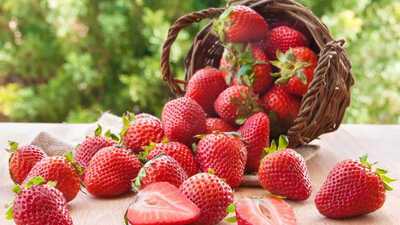
2. Broccoli
One cup of raw broccoli contains around 81 mg of vitamin C, making it a strong rival to oranges. Broccoli also delivers a powerful mix of vitamin K, fiber, and sulforaphane—a compound linked to cancer prevention. Its high nutrient density supports bone strength, digestion, and immune defense. For best results, lightly steaming broccoli helps retain more vitamin C compared to boiling. Add it to stir-fries, soups, or pair it with hummus as a crunchy snack.
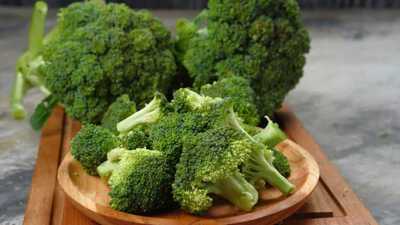
3. Bell Peppers
Among the richest natural sources of vitamin C, yellow bell peppers contain up to 341 mg per large pepper, nearly five times more than an orange. Red and green varieties also provide impressive amounts, along with beta-carotene for eye health and antioxidants that fight inflammation. Bell peppers are low in calories and high in fiber, making them a smart choice for weight management. Slice them raw for salads, roast them to enhance sweetness, or stuff them for a filling meal.
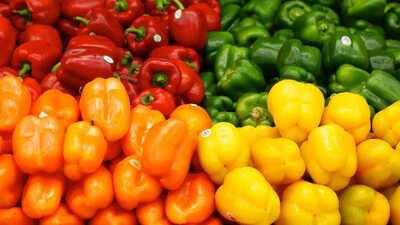
4. Kiwi
This small fruit is a nutritional powerhouse, offering about 128 mg of vitamin C in just two kiwis. In addition, kiwis are loaded with potassium, copper, and dietary fiber. They even contain serotonin, a compound that can help improve sleep quality and mood regulation. Their high antioxidant content supports glowing skin and better digestion. You can scoop kiwis straight out of their skin, blend them into smoothies, or pair them with yogurt for a refreshing breakfast.
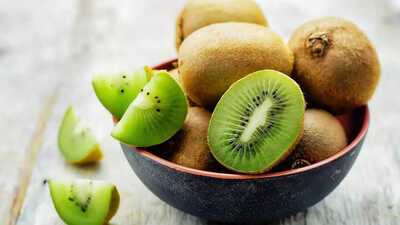
5. Brussels Sprouts
Often underrated, Brussels sprouts contain 97 mg of vitamin C per cup, along with high levels of fiber and glucosinolates, compounds that may lower cancer risk. They are also a good source of vitamin K, folate, and omega-3 fatty acids. Though sometimes criticized for their bitterness, roasting them with olive oil and garlic brings out a delicious caramelized flavor. Add them to grain bowls, stir-fries, or simply serve as a roasted side dish.

6. Kale
This leafy green isn’t just trendy—it’s genuinely nutrient-dense. A cup of raw kale provides about 91 mg of vitamin C along with seven times the daily recommended intake of vitamin K. Kale is also rich in lutein and zeaxanthin, antioxidants that protect eye health. Its mix of fiber and omega-3s supports digestion and heart health. Toss kale into salads, blend it into green smoothies, or bake kale chips for a light, crunchy snack.
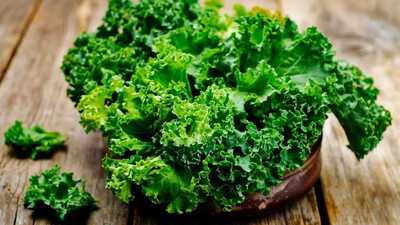
7. Pineapple
Pineapple packs 79 mg of vitamin C per cup, making it a tropical way to boost your immunity. Beyond vitamin C, pineapple is famous for bromelain, an enzyme that helps reduce inflammation, speed up recovery after exercise, and improve digestion. The fruit’s natural sweetness makes it versatile: eat it fresh, grill it for a caramelized treat, or blend it into smoothies and juices.

8. Papaya
Papaya offers 88 mg of vitamin C per cup, along with a rich mix of antioxidants like beta-carotene and lycopene. These compounds are linked to skin health, reducing inflammation, and even lowering the risk of chronic diseases. Papaya is also high in digestive enzymes that support gut health and may ease bloating. You can enjoy papaya as a breakfast fruit, blend it into tropical smoothies, or use it in fruit salads and salsas.
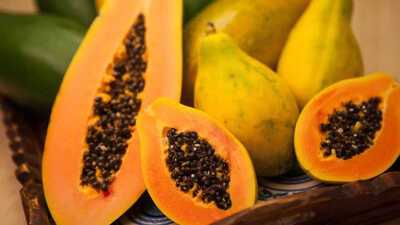
9. Cauliflower
Surprisingly, one head of cauliflower provides around 266 mg of vitamin C, more than triple that of oranges. This cruciferous vegetable is also loaded with fiber, B vitamins, and phytonutrients that support heart health and lower inflammation. Its versatility is another strength—you can steam, mash, roast, or even rice cauliflower as a low-carb substitute for grains. By incorporating it into soups, stir-fries, or casseroles, you get a major nutrient boost without sacrificing flavour.
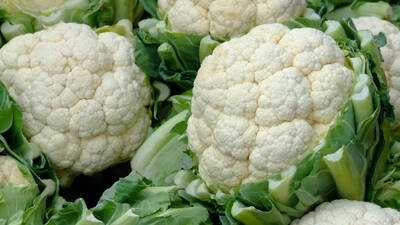
Foods richer in vitamin C than oranges
1. Strawberries
A cup of fresh strawberries provides about 98 mg of vitamin C, more than enough to help meet your daily needs. Beyond their vitamin C content, strawberries are rich in antioxidants that fight free radicals, protecting cells from damage. They also supply magnesium and folate, which are crucial for heart health and maintaining stable blood sugar levels. You can enjoy strawberries fresh, blended into smoothies, tossed into salads, or even dipped in dark chocolate for a healthy treat.
2. Broccoli
One cup of raw broccoli contains around 81 mg of vitamin C, making it a strong rival to oranges. Broccoli also delivers a powerful mix of vitamin K, fiber, and sulforaphane—a compound linked to cancer prevention. Its high nutrient density supports bone strength, digestion, and immune defense. For best results, lightly steaming broccoli helps retain more vitamin C compared to boiling. Add it to stir-fries, soups, or pair it with hummus as a crunchy snack.
3. Bell Peppers
Among the richest natural sources of vitamin C, yellow bell peppers contain up to 341 mg per large pepper, nearly five times more than an orange. Red and green varieties also provide impressive amounts, along with beta-carotene for eye health and antioxidants that fight inflammation. Bell peppers are low in calories and high in fiber, making them a smart choice for weight management. Slice them raw for salads, roast them to enhance sweetness, or stuff them for a filling meal.
4. Kiwi
This small fruit is a nutritional powerhouse, offering about 128 mg of vitamin C in just two kiwis. In addition, kiwis are loaded with potassium, copper, and dietary fiber. They even contain serotonin, a compound that can help improve sleep quality and mood regulation. Their high antioxidant content supports glowing skin and better digestion. You can scoop kiwis straight out of their skin, blend them into smoothies, or pair them with yogurt for a refreshing breakfast.
5. Brussels Sprouts
Often underrated, Brussels sprouts contain 97 mg of vitamin C per cup, along with high levels of fiber and glucosinolates, compounds that may lower cancer risk. They are also a good source of vitamin K, folate, and omega-3 fatty acids. Though sometimes criticized for their bitterness, roasting them with olive oil and garlic brings out a delicious caramelized flavor. Add them to grain bowls, stir-fries, or simply serve as a roasted side dish.

6. Kale
This leafy green isn’t just trendy—it’s genuinely nutrient-dense. A cup of raw kale provides about 91 mg of vitamin C along with seven times the daily recommended intake of vitamin K. Kale is also rich in lutein and zeaxanthin, antioxidants that protect eye health. Its mix of fiber and omega-3s supports digestion and heart health. Toss kale into salads, blend it into green smoothies, or bake kale chips for a light, crunchy snack.
7. Pineapple
Pineapple packs 79 mg of vitamin C per cup, making it a tropical way to boost your immunity. Beyond vitamin C, pineapple is famous for bromelain, an enzyme that helps reduce inflammation, speed up recovery after exercise, and improve digestion. The fruit’s natural sweetness makes it versatile: eat it fresh, grill it for a caramelized treat, or blend it into smoothies and juices.

8. Papaya
Papaya offers 88 mg of vitamin C per cup, along with a rich mix of antioxidants like beta-carotene and lycopene. These compounds are linked to skin health, reducing inflammation, and even lowering the risk of chronic diseases. Papaya is also high in digestive enzymes that support gut health and may ease bloating. You can enjoy papaya as a breakfast fruit, blend it into tropical smoothies, or use it in fruit salads and salsas.
9. Cauliflower
Surprisingly, one head of cauliflower provides around 266 mg of vitamin C, more than triple that of oranges. This cruciferous vegetable is also loaded with fiber, B vitamins, and phytonutrients that support heart health and lower inflammation. Its versatility is another strength—you can steam, mash, roast, or even rice cauliflower as a low-carb substitute for grains. By incorporating it into soups, stir-fries, or casseroles, you get a major nutrient boost without sacrificing flavour.
You may also like

Emmerdale's Aaron and Robert future sealed as fans left 'screaming' over reunion

Sumit Malik storms into U20 World Wrestling Championships final in Samokov

Stacey Solomon hits back as fans call her 'smug' after luxury £1,000 a night holiday

Three-lenders cap makes micro borrowers fall in line

Minister Kiren Rijiju gives special blessings to Arunachal bodybuilder Hillang Yajik






